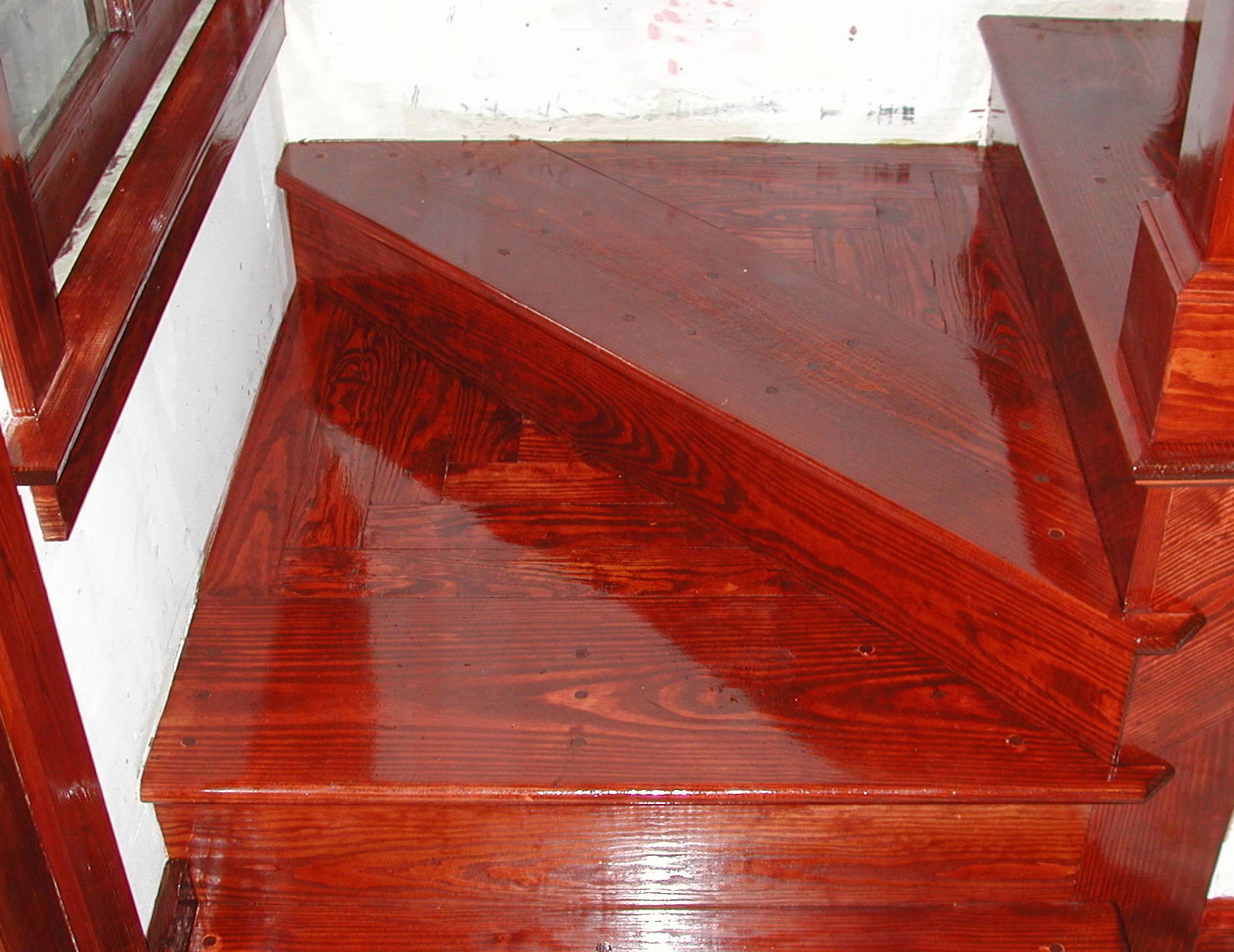|
Sanctus Seraphin
Sanctus Seraphin (Udine 1699 – Venice 1776), also known as Santo Serafin, was a successful luthier (violin maker), working in Venice. He closed his ''bottega'' (workshop) in 1741 but he continued to work in the bottega of Giorgio Serafin, his nephew, till his death in 1776. It is still unknown where he learned the art of violin making. His models were inspired to the Cremonese luthier Nicolò Amati. Seraphin's stringed instruments String instruments, stringed instruments, or chordophones are musical instruments that produce sound from vibrating strings when a performer plays or sounds the strings in some manner. Musicians play some string instruments by plucking the st ... use a varnish that ranges in color from golden brown to an orange red. The varnish is usually transparent, lustrous and soft, but occasionally displays a hard, dry and crackled appearance. A Seraphin violin ranges in value from $20,000 to $850,000, depending on condition and provenance. The auction r ... [...More Info...] [...Related Items...] OR: [Wikipedia] [Google] [Baidu] |
Luthier
A luthier ( ; AmE also ) is a craftsperson who builds or repairs string instruments that have a neck and a sound box. The word "luthier" is originally French and comes from the French word for lute. The term was originally used for makers of lutes, but it came to be used already in French for makers of most bowed and plucked stringed instruments such as members of the violin family (including violas, cellos, and double basses) and guitars. Luthiers, however, do not make harps or pianos; these require different skills and construction methods because their strings are secured to a frame. The craft of luthiers, lutherie (rarely called "luthiery", but this often refers to stringed instruments other than those in the violin family), is commonly divided into the two main categories of makers of stringed instruments that are plucked or strummed and makers of stringed instruments that are bowed. Since bowed instruments require a bow, the second category includes a subtype know ... [...More Info...] [...Related Items...] OR: [Wikipedia] [Google] [Baidu] |
Venice
Venice ( ; it, Venezia ; vec, Venesia or ) is a city in northeastern Italy and the capital of the Veneto Regions of Italy, region. It is built on a group of 118 small islands that are separated by canals and linked by over 400 bridges. The islands are in the shallow Venetian Lagoon, an enclosed bay lying between the mouths of the Po River, Po and the Piave River, Piave rivers (more exactly between the Brenta (river), Brenta and the Sile (river), Sile). In 2020, around 258,685 people resided in greater Venice or the ''Comune di Venezia'', of whom around 55,000 live in the historical island city of Venice (''centro storico'') and the rest on the mainland (''terraferma''). Together with the cities of Padua, Italy, Padua and Treviso, Italy, Treviso, Venice is included in the Padua-Treviso-Venice Metropolitan Area (PATREVE), which is considered a statistical metropolitan area, with a total population of 2.6 million. The name is derived from the ancient Adri ... [...More Info...] [...Related Items...] OR: [Wikipedia] [Google] [Baidu] |
Stringed Instruments
String instruments, stringed instruments, or chordophones are musical instruments that produce sound from vibrating strings when a performer plays or sounds the strings in some manner. Musicians play some string instruments by plucking the strings with their fingers or a plectrum—and others by hitting the strings with a light wooden hammer or by rubbing the strings with a bow. In some keyboard instruments, such as the harpsichord, the musician presses a key that plucks the string. Other musical instruments generate sound by striking the string. With bowed instruments, the player pulls a rosined horsehair bow across the strings, causing them to vibrate. With a hurdy-gurdy, the musician cranks a wheel whose rosined edge touches the strings. Bowed instruments include the string section instruments of the orchestra in Western classical music (violin, viola, cello and double bass) and a number of other instruments (e.g., viols and gambas used in early music from the Baroque m ... [...More Info...] [...Related Items...] OR: [Wikipedia] [Google] [Baidu] |
Varnish
Varnish is a clear transparent hard protective coating or film. It is not a stain. It usually has a yellowish shade from the manufacturing process and materials used, but it may also be pigmented as desired, and is sold commercially in various shades. Varnish is primarily used as a wood finish where, stained or not, the distinctive tones and grains in the wood are intended to be visible. Varnish finishes are naturally glossy, but satin/semi-gloss and flat sheens are available. History The word "varnish" comes from Mediaeval Latin ''vernix'', meaning odorous resin, itself derived from Middle Greek ''berōnikón'' or ''beroníkē'', meaning amber or amber-colored glass. A false etymology traces the word to the Greek ''Berenice'', the ancient name of modern Benghazi in Libya, where the first varnishes in the Mediterranean area were supposedly used and where resins from the trees of now-vanished forests were sold. Early varnishes were developed by mixing resin—pine sap, for ex ... [...More Info...] [...Related Items...] OR: [Wikipedia] [Google] [Baidu] |
1699 Births
Events January–March * January 5 – A violent Java earthquake damages the city of Batavia on the Indonesian island of Java, killing at least 28 people * January 20 – The Parliament of England (under Tory dominance) limits the size of the country's standing army to 7,000 'native born' men; hence, King William III's Dutch Blue Guards cannot serve in the line. By an Act of February 1, it also requires disbandment of foreign troops in Ireland. * January 26 – The Republic of Venice, Polish–Lithuanian Commonwealth and Holy Roman Empire sign the Treaty of Karlowitz with the Ottoman Empire, marking an end to the major phase of the Ottoman–Habsburg wars. The treaty marks a major geopolitical shift, as the Ottoman Empire subsequently abandons its expansionism and adopts a defensive posture while the Habsburg monarchy expands its influence. * February 3 – The first paper money in America is issued by the colony of Massachusetts, to pay its soldiers fighting against Queb ... [...More Info...] [...Related Items...] OR: [Wikipedia] [Google] [Baidu] |
1776 Deaths
Events January–February * January 1 – American Revolutionary War – Burning of Norfolk: The town of Norfolk, Virginia is destroyed, by the combined actions of the British Royal Navy and occupying Patriot forces. * January 10 – American Revolution – Thomas Paine publishes his pamphlet ''Common Sense'', arguing for independence from British rule in the Thirteen Colonies. * January 20 – American Revolution – South Carolina Loyalists led by Robert Cunningham sign a petition from prison, agreeing to all demands for peace by the formed state government of South Carolina. * January 24 – American Revolution – Henry Knox arrives at Cambridge, Massachusetts, with the artillery that he has transported from Fort Ticonderoga. * February 17 – Edward Gibbon publishes the first volume of ''The History of the Decline and Fall of the Roman Empire''. * February 27 – American Revolution – Battle of Moore's Creek Bridge: ... [...More Info...] [...Related Items...] OR: [Wikipedia] [Google] [Baidu] |
Italian Luthiers
Italian(s) may refer to: * Anything of, from, or related to the people of Italy over the centuries ** Italians, an ethnic group or simply a citizen of the Italian Republic or Italian Kingdom ** Italian language, a Romance language *** Regional Italian, regional variants of the Italian language ** Languages of Italy, languages and dialects spoken in Italy ** Italian culture, cultural features of Italy ** Italian cuisine, traditional foods ** Folklore of Italy, the folklore and urban legends of Italy ** Mythology of Italy, traditional religion and beliefs Other uses * Italian dressing, a vinaigrette-type salad dressing or marinade * Italian or Italian-A, alternative names for the Ping-Pong virus, an extinct computer virus See also * * * Italia (other) * Italic (other) * Italo (other) * The Italian (other) * Italian people (other) Italian people may refer to: * in terms of ethnicity: all ethnic Italians, in and outside of Italy * in ... [...More Info...] [...Related Items...] OR: [Wikipedia] [Google] [Baidu] |

.jpg)



%2C_by_John_Trumbull.jpg)